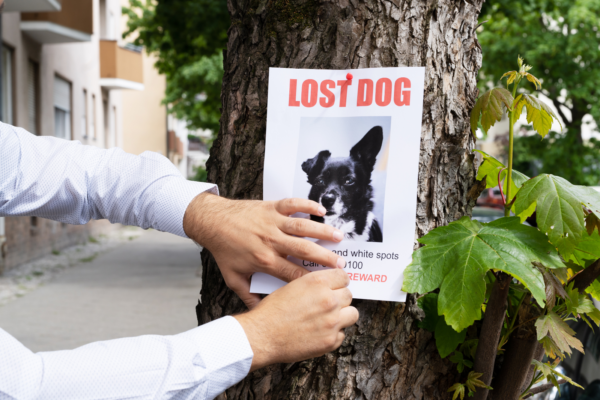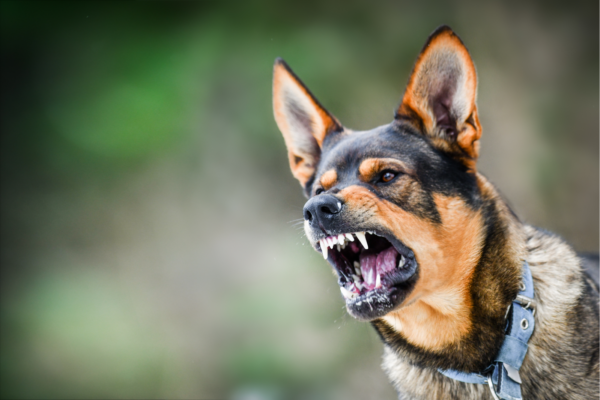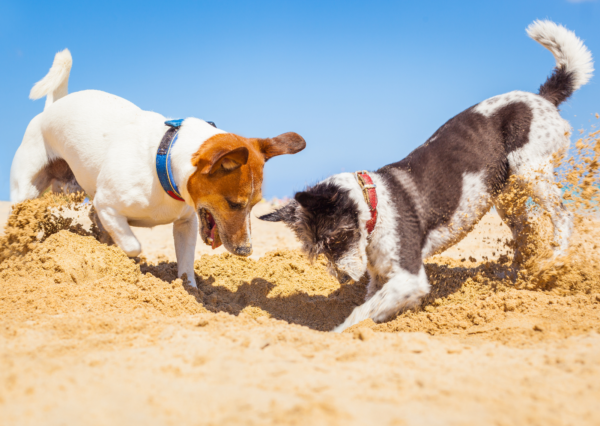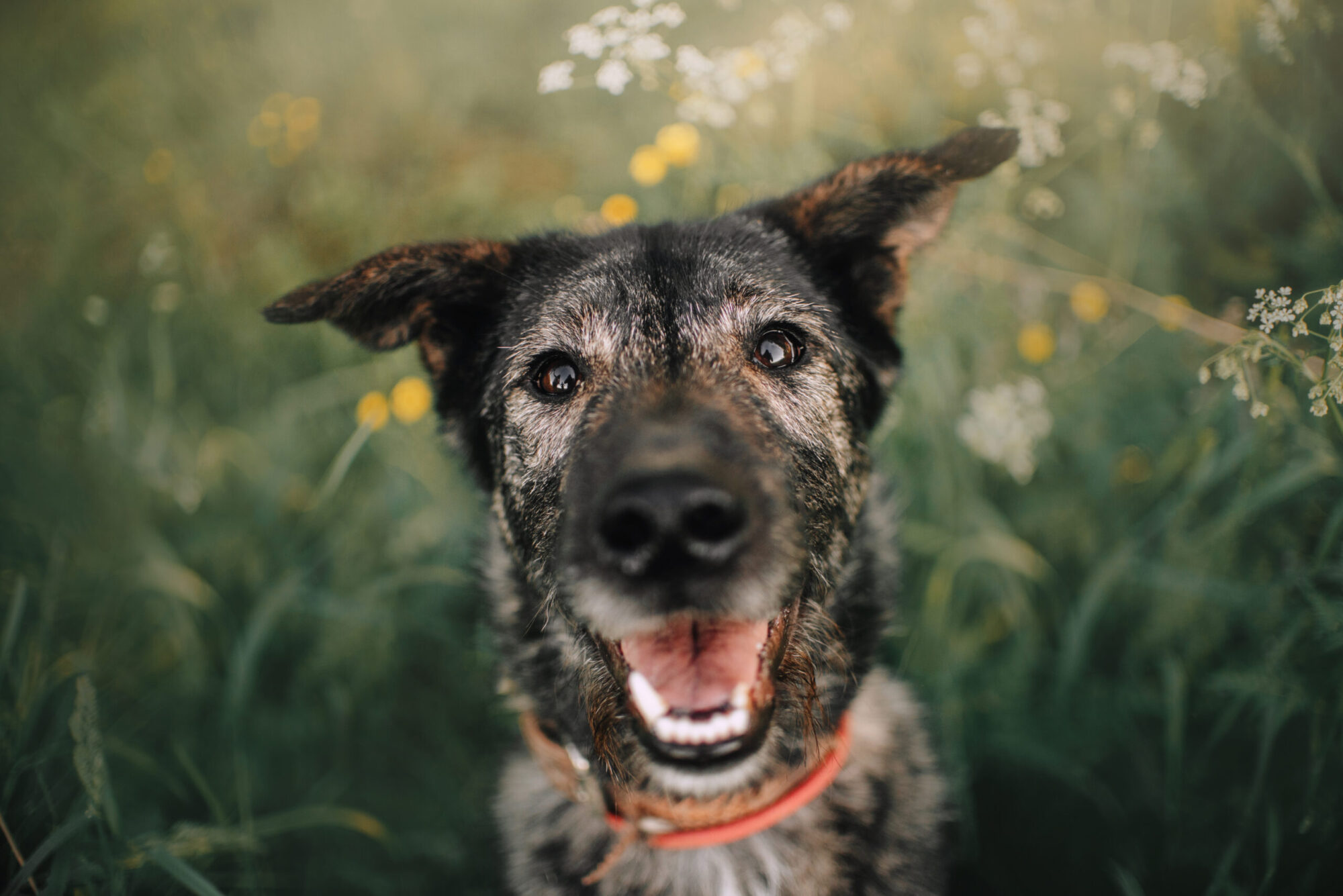Why do we accept humans to have different personalities while we ask our dogs to conform to others?
Each of our past experiences forms our new behaviors. Have we all had the same experiences? Are we all identical? No it’s impossible. And so much better this way. Some of us are perceived as mostly calm, other athletic, others funny, some home-bodied, other extroverts … And at the same time, in spite of our perception of the personality of a third person, it can be what we envision, what we perceive, as its opposite extreme. I love massages. Does this mean that I like them in all circumstances, even when I give a lecture, even when I’m in the bathroom, even when I’m on a client’s appointment?
No, I only appreciate them when it is the right environment for. You, who are considered the absolute calm or you, who are the grump of the band, are you as much when you are under a palm tree to sip a cocktail than when you are stuck in traffic jam after a grueling day at work ? Do you enjoy playing hide-and-seek with your young children when you are at home as much as when you are in a big amusement park? Do you feel the same pleasure watching Jurassic Park at the movies as being face to face with a velociraptor? Hmm … that’s too much! 😉
Our personality and our behaviors evolve according to our environment. Surprisingly, we have fully integrated this phenomenon with our fellow humans but we struggle terribly to attribute it to our dogs. We perfectly accept that people around us may have different reactions to the same stimulus but in a different context, but we reject this idea for our four-legged companions.
They must, whatever the environment, whatever the situation, always be well behaved, polite, sociable, obedient, clean … As soon as they no longer are, they change from the “nice little dog darling love” to the “problem dog”. Indeed, a dog who enjoys the company of the family’s children on a Sunday morning, will not necessarily appreciate being oppressed by dozens of small hands during the cadet’s birthday at the recreation area, when the thermometer shows 30 °c in shade. “Oh, Mrs. Smith, I’m so sorry for your little boy! I really do not understand what happened; Rex adores children! “. Yes. But not all the time, not everywhere, not in all environments, not in all situations.
- Can we expect from all our dogs that they appreciate as much a walk in the forest as a walk in the streets of London?
- Can we expect from each of them to be calm and patient in our car when we go to grandma at 5 kilometers in the same city as much as to go on holydays by car with 4 kids on the other side of the country?
- Should we ask our dogs to be as sociable with their best dog friend as with all other dogs, whether on the street or in the crowded waiting room of the neighborhood vet?
Why do we accept humans to have different personalities while we ask our dogs to conform to others?
When we think about it, we can only respect dogs. Since their domestication, they adapt to our lifestyles, our desires, our needs, to us, humans. The more our love for them evolves, the more we ask them to be irreproachable. Sociability with strangers, with all children, with any other dog, medical training, feeling good at the vet, loving the car, sometimes the train and the plane, going out when we wish, cuddling on the sofa but do not climb on it when there are guests, … In addition to our irrepressible desire to attribute only one personality to them (as close as possible to perfection) whatever the environment, we forget that they too, just as we, evolve.
Each of our past experiences forms our new behaviors. I’m in my thirties. What I love about life, besides my job, is spending time at home, with my family, my husband and my pets. Fifteen years ago, what I liked was going to the nightclub with my girlfriends. I loved to go dancing, and, like most girls of my age, when the DJ was playing one of my favorite music, I screamed and laughed! Today, if I were to find myself in such an environment, I would pester because of the music too loud, I would make a palm with my hand to simule a fan because of the heat and I would probably put Vicks® under my nose to mask the smells. We can say that I evolved, that I changed. Does this make me a better or a less good person? Neither one nor the other. It just makes me who I am.
Again, we accept that the “personality” of our fellow humans is changing, but we refuse to admit that dogs can change too. I met dozens of customers who were unhappy to see that their dogs, now adults, no longer seemed to enjoy the same outings, the same toys, activities, cuddles or the same congeners as in their younger years.
Nakaru, a young staffie of a year and a half, has shown signs of discomfort recently during his last outings with a dog walks group. Until a few weeks ago, Nakaru was running with his peers, bickering with them, playing with both puppies and adults, and his body language was as close as possible to those cartoon dogs with a huge smile. But Nakaru confirmed, through his body language, that this environment was no longer for him now and that he felt much more comfortable with a smaller group of canine friends. Does that make him a better or a less good companion? Neither. It just makes him who he is : “Nakaru”! As long as their behaviors do not put them in danger and as long as they are not for others, we should simply accept that our dogs are different from each other and offer them an environment in which they feel happier, every day.
To make them happy… isn’t it the main reason why we adopted them ?
Lisa Longo, CPBT-KA Animal Académie
See also other posts:
June 30, 2023

Get Your Lost Dog Back Home Quickly: Follow These 12 Tips for Success
Vacations favor more frequent and longer walks with our furry friends. We travel, visit new places. Summer makes us loosen our brakes and allow our…
June 30, 2023

Managing Aggressive Dog Behavior: Tips for Peaceful Living
Living with an aggressive dog may seem challenging, but it can be peaceful and manageable with the right approach. One key aspect is to remain…
June 30, 2023

Unlocking the Secret to Successful Puppy Socialization: Quality over Quantity
Today, although the topic is very important, I will keep it brief. Socialization is a topic that could fill books or scientific papers. However, today…

